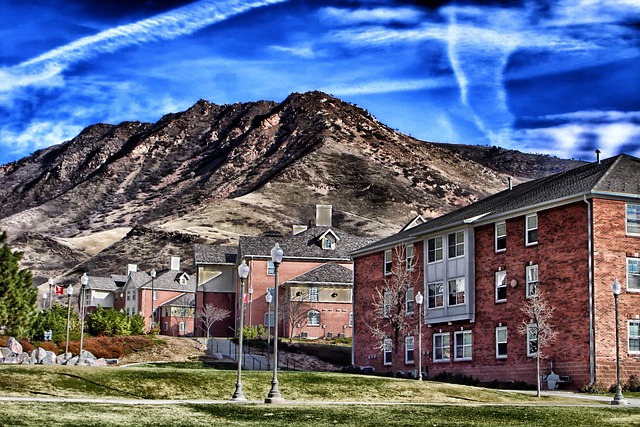Navigating the world of insurance can be overwhelming, especially when it comes to finding affordable insurance options. In Utah, with its unique landscape and lifestyle considerations, having the right insurance coverage is crucial. CheapInsurance.com will be your guide to understanding the different types of insurance available, finding the best insurance quotes, and making smart choices to ensure you’re protected without breaking the bank.
Key Takeaways:
- Understand the different types of insurance essential in Utah, like auto, renters, and homeowners insurance.
- Compare insurance quotes to find the best rates. Utilize discounts and bundling options for additional savings.
- Find the balance between affordable insurance coverage and potential out-of-pocket costs by assessing your risk tolerance and budget.
- Take proactive steps like maintaining your car and home security to potentially lower insurance premiums.

What types of insurance are essential in Utah?
In Utah, several insurance types are considered essential depending on your circumstances. Here’s a breakdown of the most common:
Auto Insurance: Car insurance in Utah is required by law. The minimum required coverage includes automobile liability insurance for bodily injury and property damage to others. However, consider additional coverage options like collision insurance and comprehensive insurance for your own vehicle’s protection.
Renters Insurance: While not mandatory, renters insurance is highly recommended. It protects your belongings in case of fire, theft, or vandalism and often provides additional liability coverage if someone gets injured in your rented space.
Homeowners Insurance: If you own a home, homeowners insurance in Utah is essential. It protects your dwelling from various perils like fire, theft, and weather-related damage. It also provides liability coverage if someone gets injured on your property.
When it comes to insurance, there are different levels of coverage you can choose from. Let’s explore some key differences:
Minimum Required Coverage: This is the bare minimum mandated by law (for auto insurance) or considered standard practice (for renters insurance). It offers basic protection but may not cover all potential situations.
Comprehensive Coverage: This offers broader protection for your vehicle or belongings. For auto insurance, it covers damage caused by events other than collisions, such as theft, vandalism, or weather events. For renters insurance, it might include additional living expenses if your apartment becomes uninhabitable due to a covered peril.

Saving on Insurance Premiums in Utah: Discounts and Bundling Options
Here are some strategies to secure affordable insurance prices in Utah.
Compare Insurance quotes: Don’t just settle for the first quote you receive. Get multiple insurance quotes from several companies to find the best pricing. Online insurance comparison tools can be helpful for this.
Maintain a good driving record: A clean driving record with no accidents or violations can significantly lower your auto insurance premiums.
Increase your deductible: Choosing a higher deductible lowers your insurance premium but this means you’ll pay more out-of-pocket before your insurance kicks in for a claim.
Take advantage of discounts: Many insurance companies offer insurance discounts for good students, low mileage drivers, bundling multiple insurance policies like auto insurance and renters insurance, having security systems in your home, etc.
Pay your premiums in full: Some companies offer discounts for paying your entire premium upfront instead of monthly installments.
Finding the Balance: Affordable Coverage vs. Out-of-Pocket Costs in Utah
Finding the right balance between inexpensive insurance coverage and potential out-of-pocket costs is crucial. Here are some tips:
- Consider your risk tolerance: How comfortable are you potentially paying for repairs or replacements out of pocket? If you’re risk-averse, opting for more comprehensive coverage might be worth the higher premium.
- Evaluate your assets: The value of your car, home, or belongings can influence your choice of coverage. More valuable assets might warrant more comprehensive protection.
- Review your budget: Look at your overall financial situation and determine how much you can comfortably afford to spend on insurance, by adjusting your insurance deductibles.

Saving Money on Insurance in Utah: Prevention Tips and Strategies
- Maintain your vehicle: Regularly scheduled maintenance helps prevent breakdowns and accidents, potentially lowering your car insurance premiums.
- Improve your home security: Installing security systems, smoke detectors, and deadbolts can demonstrate a lower risk to insurers, leading to potential homeowner insurance discounts.
- Take defensive driving courses: Completing defensive driving courses shows your commitment to safe driving and may qualify you for discounts.
- Raise your credit score: Many insurance companies consider your credit score when setting rates. Maintaining a good credit score can lead to lower insurance premiums.
- Review your coverage regularly: As your life circumstances change (e.g., buying a new car, paying off your home), revisit your insurance coverage to ensure you’re not paying for unnecessary features.
Don’t prioritize the price of your insurance over adequate insurance coverage:
While saving money is important, ensure your chosen insurance plan offers the protection you need in case of an unexpected event. By following these tips and utilizing the resources available, you can navigate the world of insurance in Utah with confidence, ensuring you have the peace of mind that comes with knowing you’re protected without overspending.


